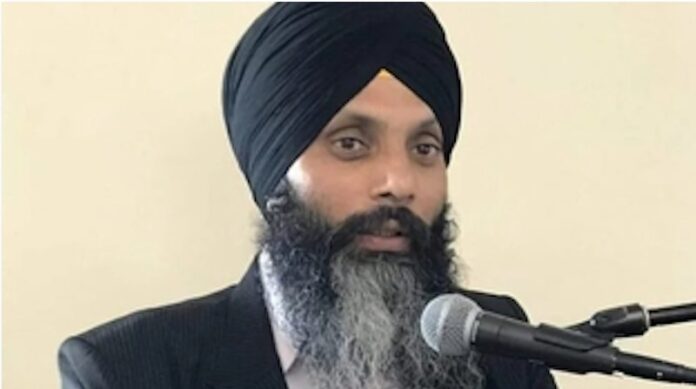By P.K Balachandran
Colombo, October 16: In the recent past, strains have developed in India’s relations with Canada and the US over allegations by the latter that India has eliminated, or is trying to eliminate, Sikh terrorists and separatists operating from Canada and the US.
The strain reflects critical differences in the way India and the West view democracy, freedom and national sovereignty. Since the West sees India as a democracy, it wants India to adhere to Western notions of democracy, freedom and national sovereignty. Any transgression of these values is deemed unacceptable and condemnable.
Ties between Ottawa and New Delhi have clearly haemorrhaged over these issues. But neither side has reasons to be too worried about it given the relatively level of the ties. But ties between Washington and New Delhi are a different kettle of fish altogether both in depth and range. As such, both the US and India are treading cautiously on the alleged Indian involvement in an attempt to assassinate the Sikh separatist leader Gurpatwant Singh Pannun in New York in 2023.
While Canada and India have crossed limits trading barbs and expelling diplomats, India has merely denied involvement in the Pannun affair and has sent a delegation to the US for discussions.
Canada
On October 14, Canada expelled six Indian diplomats including High Commissioner Ramesh Kumar Verma, linking them to the murder of the Sikh separatist leader Hardeep Singh Nijjar and alleging a broader effort to target Indian dissidents in Canada.
Canada’s Foreign Minister, Melanie Joly, said that government had requested India to remove the diplomatic immunity of six diplomats so that the Canadian investigative agencies could question them regarding the allegations of criminal activity. But since India did not co-operate, it had to expel the diplomats, Joly added.
Earlier in the day, India ordered the expulsion of six high-ranking Canadian diplomats including Acting High Commissioner Stewart Wheeler, and said it had withdrawn its envoy from Canada, contradicting Canada’s statement about their expulsion.
New Delhi rejected the “preposterous imputations” in the Canadian assertion. It accused Prime Minister Justin Trudeau of having a “political agenda” centred around “vote-bank politics,” an Indian term referring to communal vote garnering tactics by favouring them on an issue.
“Since Prime Minister Trudeau made certain allegations in September 2023, the Canadian Government has not shared a shred of evidence with the Government of India, despite many requests from our side. This latest step follows interactions that have again witnessed assertions without any facts. This leaves little doubt that on the pretext of an investigation, there is a deliberate strategy of smearing India for political gains” the Indian Ministry of External Affairs statement said.
India further said it was withdrawing its diplomats from Canada because it was not confident that their safety could be guaranteed. India asked the Acting Canadian High Commissioner Stewart Wheeler to leave India by Saturday night and added that “India reserves the right to take further steps in response to these latest efforts of the Canadian government to concoct allegations against Indian diplomats.”
India-Canada relations had frayed since Canadian Prime Minister Justin Trudeau said in 2023, that he had evidence linking Indian agents to the assassination Nijjar on Canadian soil. Trudeau told the media that his government had “clear and compelling evidence that agents of the government of India have engaged in and continue to engage in activities that pose a significant threat to public safety.”
“These activities involved clandestine information gathering techniques, coercive behaviour, targeting South Asian Canadians and involvement in over a dozen threatening and violent acts, including murder. India had committed a fundamental error by engaging in criminal activities in Canada. This is unacceptable,” Trudeau said.
The Royal Canadian Mounted Police (RCMP) said in an earlier news conference that the government of India had also used organised crime to target the South Asian community in Canada and interfered in democratic processes.
New Zealand’s Foreign Minister Winston Peters said on X: “The alleged criminal conduct outlined publicly by Canadian law enforcement authorities, if proven, would be very concerning.”
The Western media quoted Fen Osler Hampson, Professor of international relations at Ottawa’s Carleton University as saying: “We have gone from a rift to a major rupture in the relationship with India. It is hard to see at this juncture that a return to normalcy will happen any time in the foreseeable future.”
US Allegations
A US indict





